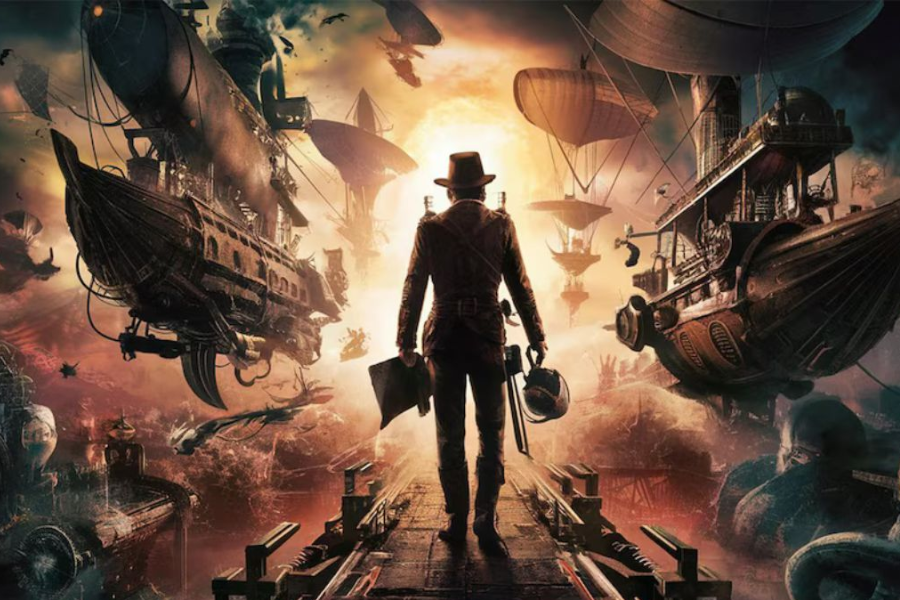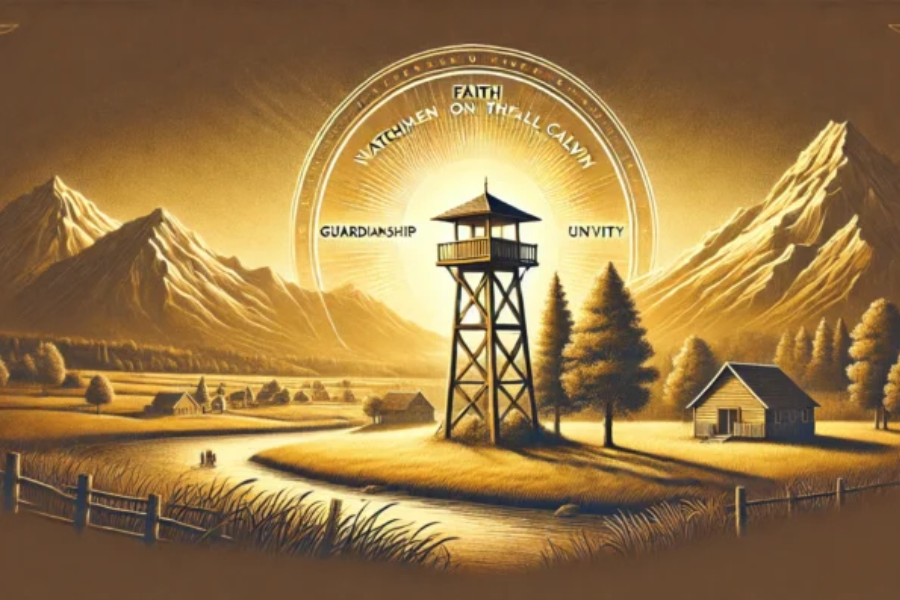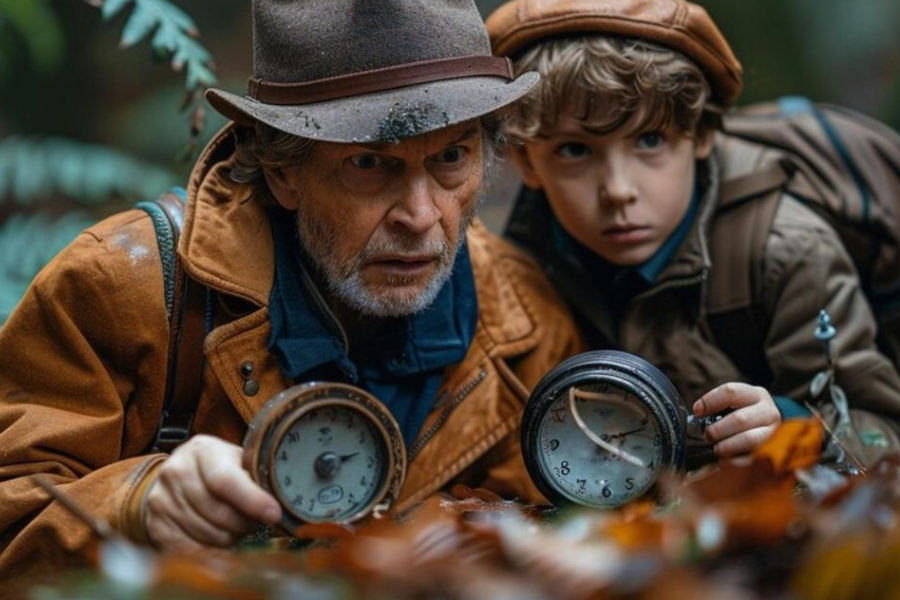Watchmenontheall Calvin is a remarkable work that stretches beyond the confines of conventional storytelling, weaving together themes of morality, sacrifice, and justice in a narrative that intensifies with every twist and turn. This compelling story invites readers to challenge their perspectives on values, examine the complexities of its characters, and delve into the subtle messages it communicates.
Whether you’re a long-time fan of intricate narratives or a first-time reader curious about the mysteries of Watchmenontheall Calvin, this exploration will take you through the heart of its enduring brilliance. We’ll uncover the central themes, analyze the multifaceted characters, and explore the lasting significance of this masterwork.
Core Themes in Watchmenontheall Calvin
A truly impactful narrative is built upon profound themes—those that challenge, provoke, and compel us to reflect on our own lives. Watchmenontheall Calvin does exactly this, tackling deep and resonant issues that continue to linger long after the book is closed.

The Fragility of Justice
At the heart of the story lies an exploration of justice—its vulnerabilities, nuances, and ambiguities. Through unpredictable plot developments, readers are prompted to reconsider the very nature of fairness, questioning whether it can ever truly be objective or whether it’s simply a reflection of personal biases.
Sacrifice and Redemption
Sacrifice is a theme that resonates deeply in Watchmenontheall Calvin. Characters are forced to make choices that demand the surrender of something vital—whether it’s safety, love, or their sense of integrity—for the greater good. What follows is the possibility (or illusion) of redemption, offering a flicker of hope in a world rife with uncertainty.
Unmasking Morality
Perhaps one of the most striking elements of the story is its exploration of morality. It challenges the reader to question who defines what is right or wrong, often blurring the lines between heroism and villainy. Are the characters truly righteous, or are they simply flawed individuals acting out of self-interest?

Characters That Shape the Narrative
The strength of Watchmenontheall Calvin lies not only in its themes but also in its richly developed characters. These figures reflect the complexities of human nature, adding depth and meaning to the story as they navigate the shifting moral landscape.
Calvin: The Hesitant Guardian
Calvin embodies the archetype of the reluctant hero. However, unlike the typical portrayal, he is deeply tormented by past actions and internal conflict. With power comes a heavy responsibility, and Calvin must constantly grapple with his drive to protect others while resisting the urge to control. His struggles mirror the universal quest for good, even when the boundaries between right and wrong become increasingly blurred.
Mira: The Persistent Idealist
Mira stands as a beacon of hope, unwavering in her belief that a brighter future is possible. Her idealism contrasts sharply with the moral complexities surrounding her, challenging Calvin and others to reconsider their motives. Far from being naïve, Mira shows that hope and conviction can be among the strongest forces in an imperfect world.
The Faceless Order: Protectors or Manipulators?
The Faceless Order presents an enigmatic force in the story, raising the timeless question of whether the ends justify the means. Their methods—often shrouded in secrecy—add layers of intrigue and complexity to the narrative, forcing readers to consider their true nature: are they guardians of justice, or overlords who manipulate the world for their own ends?
The Legacy of Watchmenontheall Calvin
So, why does Watchmenontheall Calvin resonate so deeply with readers? Its significance goes beyond the compelling story it tells; it challenges us to reflect on our own values and the complexities of human life. This story is not merely a fictional tale—it’s a mirror that encourages readers to consider the delicate balance between idealism, morality, and justice.

Cultural and Literary Impact
By blending art and narrative in an innovative way, Watchmenontheall Calvin has set a new standard for storytelling. It is a prime example of how art and literature can engage with complex philosophical questions, while still offering an immersive and captivating reading experience.
Reflecting the Human Condition
Through its characters and their struggles, Watchmenontheall Calvin captures the essence of the human experience. It explores themes of hope, failure, redemption, and the imperfections inherent in all of us. In doing so, it serves as a poignant reflection of the world we inhabit.
The Call for Vigilance
The title itself, Watchmenontheall Calvin, reminds us of the need for vigilance—not just in monitoring external threats, but in evaluating our own beliefs, intentions, and actions. It’s a call to stay watchful over the boundaries of our own moral compass, and to ensure that we don’t lose sight of our ideals amidst a chaotic world.
How to Gain New Perspectives from the Story
Whether you’re reading Watchmenontheall Calvin for the first time or revisiting it, here are some strategies to unlock deeper insights:
Re-examine the Themes: Reread the story through the lens of its core themes. How do concepts like justice, sacrifice, and morality evolve throughout the narrative?
Focus on Character Development: Dive into a single character’s journey. Notice how they evolve and what key moments shape their path.
Engage in Discussions: Share your thoughts with others who have read the story. Participating in forums or book clubs can offer new perspectives and deepen your understanding.
What Does Watchmenontheall Calvin Mean to You?
Watchmenontheall Calvin isn’t just a story—it’s a transformative experience. It pushes readers to confront the deeper questions of existence, morality, and justice, while urging them to reflect on their own lives. Through its complex characters, intricate themes, and philosophical undertones, this work invites introspection and personal growth. Whether you’re grappling with the choices you’ve made or questioning your moral compass, Watchmenontheall Calvin serves as a powerful catalyst for self-exploration.
A Journey of Self-Reflection
At its core, Watchmenontheall Calvin challenges us to examine our personal beliefs and values. The characters’ struggles are a mirror reflecting our own dilemmas—decisions about right and wrong, sacrifice, and redemption. As we follow the arcs of characters like Calvin and Mira, we are prompted to reflect on how we would act in similar situations, forcing us to confront the complexities of our own decision-making processes.
For instance, Calvin’s internal conflicts around morality and justice might echo the struggles we face when trying to balance our ideals with the messy realities of life. The story forces us to ask, “What would I be willing to sacrifice for a greater good?” It’s a profound call to self-awareness.
Challenging Your Perception of Justice
One of the most compelling aspects of Watchmenontheall Calvin is its exploration of justice and its inherent fragility. The story asks readers to reconsider their preconceived notions of fairness, shining a light on the subjective nature of moral judgment. Is justice an absolute concept, or is it shaped by our personal biases and experiences? By grappling with this central theme, Watchmenontheall Calvin pushes readers to examine how they define and pursue justice in their own lives.
This challenge to our understanding of justice can be a powerful tool for personal growth. Are we too quick to judge others, or are we able to see the complexities that shape their actions? The book offers us the opportunity to explore these nuances in a safe and thought-provoking way.
Finding Meaning in Sacrifice and Redemption
The themes of sacrifice and redemption resonate deeply in Watchmenontheall Calvin. Characters make painful choices, often at the expense of their own happiness, for the sake of something greater. These sacrifices—whether personal, emotional, or ethical—force readers to think about what they are willing to give up for a cause or a person they care about.
The question of redemption also looms large. Can someone truly redeem themselves after a fall from grace? What does redemption look like, and what sacrifices must one make to achieve it? These questions extend beyond the pages of the book, prompting us to evaluate our own need for redemption and what steps we might take toward it.
Unveiling the Complexity of Morality
In Watchmenontheall Calvin, morality is not presented in black-and-white terms. Instead, the story delves into the shades of gray that define human actions. The characters struggle with moral dilemmas that are far from easy to resolve, forcing readers to think critically about the nature of right and wrong.
This complexity of morality compels us to consider our own views on these issues. When confronted with moral choices in our own lives, do we follow a rigid code of ethics, or do we adjust our standards based on the situation? Watchmenontheall Calvin encourages us to explore the flexibility of our moral boundaries and what it means to be truly just.
Immersing Yourself in the Layers of Watchmenontheall Calvin
If you haven’t yet experienced Watchmenontheall Calvin, there’s no better time to dive into its intricate layers. Each reading uncovers new depths, allowing you to peel back layers of meaning that weren’t apparent at first glance. The more you engage with the story, the more you begin to see the connections between its themes and your own life.
As you explore the world of Watchmenontheall Calvin, you might find yourself questioning the choices you’ve made and the values you hold. The book doesn’t just entertain; it challenges you to evolve as a person. It invites you to think critically, introspectively, and deeply about what really matters in life.
The Lasting Impact of Watchmenontheall Calvin
The significance of Watchmenontheall Calvin lies not only in its compelling narrative but in the lasting effect it has on its readers. It’s a story that stays with you long after you’ve finished reading it. The questions it raises, the characters it introduces, and the complex moral dilemmas it presents continue to echo in your mind, forcing you to reconsider the way you see the world.
The book’s ability to provoke thought and self-reflection ensures that it will remain relevant for years to come. It is a timeless exploration of the human condition, encouraging readers to remain vigilant over their own choices, beliefs, and actions. Watchmenontheall Calvin reminds us that the pursuit of justice, the quest for redemption, and the exploration of morality are ongoing processes—ones that require constant attention and introspection.
Watchmenontheall Calvin Facts
Here are some key facts about Watchmenontheall Calvin to help you understand its significance and impact:
Genre: Watchmenontheall Calvin is a complex work of philosophical fiction that blends elements of dystopian literature, psychological drama, and moral exploration.
Themes: The novel delves into themes such as justice, morality, sacrifice, redemption, and the complexities of human nature.
Character Focus: The story revolves around Calvin, a reluctant hero grappling with his moral dilemmas, and Mira, a steadfast idealist challenging the status quo.
Philosophical Depth: The book asks deep, existential questions about what it means to be just, righteous, and human. It explores the fragility of justice and the blurred lines between heroism and villainy.
Impact: Watchmenontheall Calvin has garnered a dedicated following for its rich character development, intricate plot, and thought-provoking themes. It is often discussed for its relevance to real-world moral and ethical dilemmas.
Multiple Readings: The book is designed to be revisited multiple times, as each reading offers fresh insights into its characters and overarching themes.
Watchmenontheall Calvin Short FAQs
Q: What is Watchmenontheall Calvin about?
A: It’s a philosophical fiction exploring themes of justice, morality, and sacrifice, centered around the characters Calvin and Mira.
Q: What are the key themes?
A: Justice, sacrifice, and the complexity of morality.
Q: Is it suitable for fans of philosophical fiction?
A: Yes, it’s ideal for those who enjoy exploring deep moral and ethical questions.
Q: How does the book approach justice?
A: It portrays justice as fragile and subjective, questioning its true impartiality.
Conclusion
Watchmenontheall Calvin is more than just a novel; it’s an exploration of the human condition, a reflection on the ethical dilemmas we face, and a deep dive into the complexities of justice, sacrifice, and morality. Through its nuanced characters and intricate plot, it challenges readers to think critically about their own beliefs and actions. Whether you’re a seasoned reader or a newcomer to philosophical fiction, Watchmenontheall Calvin offers valuable insights and will leave a lasting impact. Don’t just read it—immerse yourself in its layers and let it inspire introspection and thoughtful discussion.
Stay Connected and alerts for More updates. Tech Pro Billion
